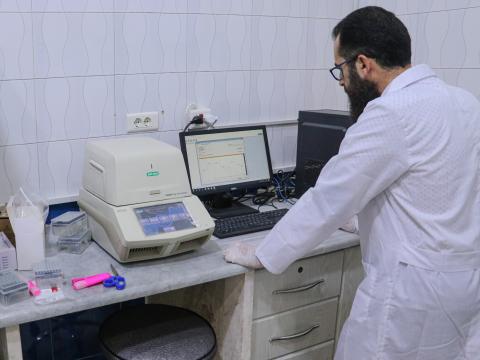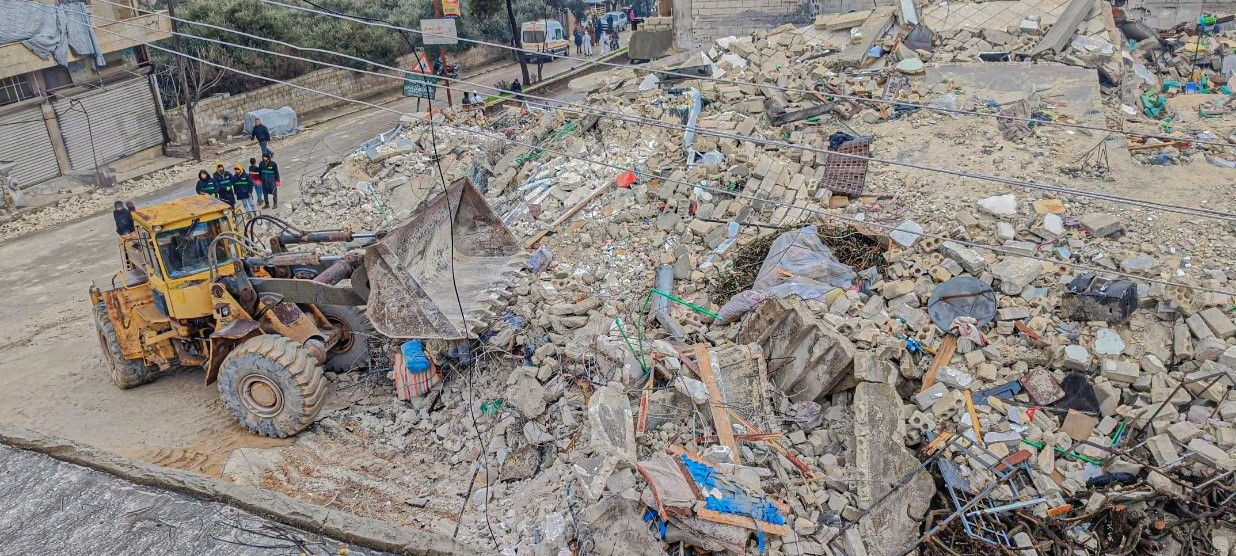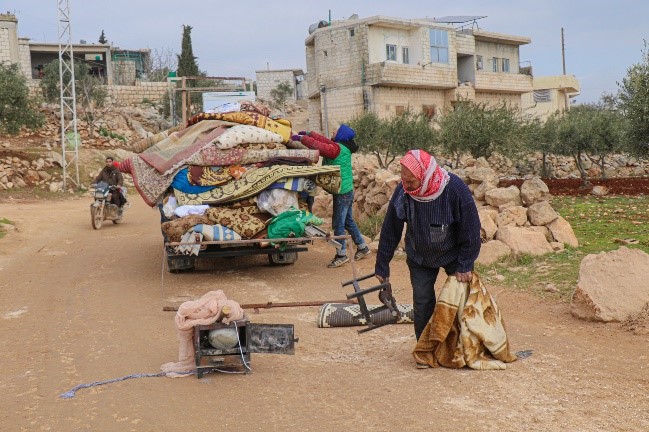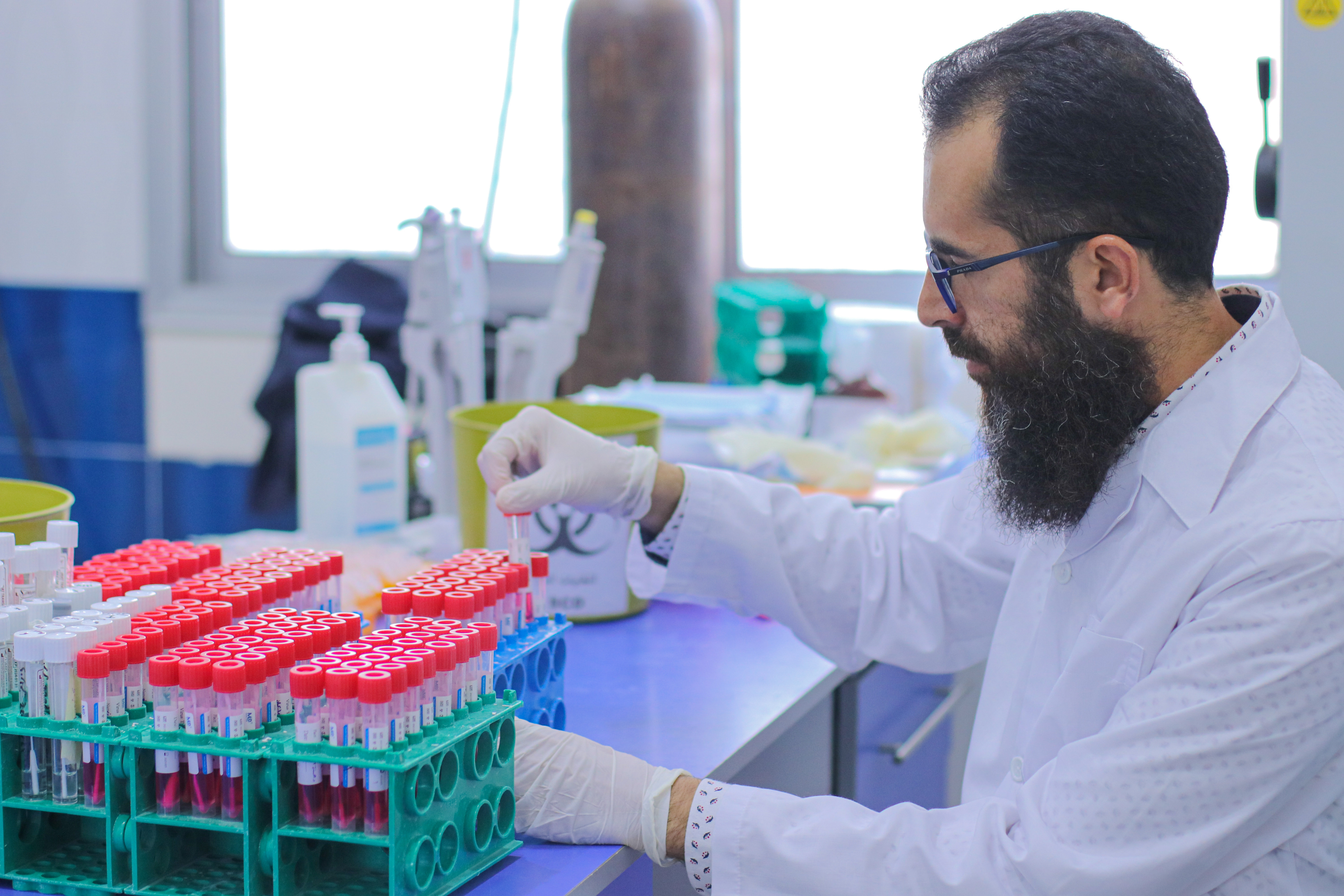Torn Down Buildings Don’t Halt Viruses

Syria has been through unstable conditions since March 2012 but at least the ground was stable. Even though the soil absorbed layers of trauma and terror but it felt sturdy enough to withstand all the shelling and the persecution
However, on 6 February 2023, 4:20 AM to be exact, the ground started banging dismantling walls and tearing down 10-story buildings. This shook any remaining feeling of safety Syrians ever had. People escaped to the streets while mothers screamed for their children still trapped under the rubble. The tragedy took 50,000 human lives.

Consultant, World Vision Syria Response
Way before the quake, situation in Syria wasn’t ideal. 6.8 million Syrians abandoned their homes to escape the brutality in their villages. They hoped to find a type of safety in the far-away displacement camps. But, after the quake, numbers of people in camps increased. And now, 86,000 more people are afraid to set foot inside their barely-standing homes thus becoming homeless or displaced.

ULUSLARARASI INSANI YARDIMLAŞMA DERNEĞI, World Vision Syria Response partner
And amidst all the chaos, infectious viruses were creeping its way into Syrians’ bodies. COVID-19 was and still is spreading across Syria and Cholera cases are rising. For that reason, World Vision continued its early-detection services along with its implementing partner in Syria through Bureau for Humanitarian Assistance’s funding. This support alleviated people’s struggle in seeking medical help during the difficult times of the earthquake.
Samah*,41, is one of the people who benefitted from these services. Her high level of awareness drove her to conduct a Cholera test at our partner’s health centre. While she was on her way, Samah began confusing realty with fiction.
A couple of days ago, the family of six [including four children] miraculously escaped their home after the earthquake tore down their village. “I wasn’t aware of what exactly happened. Chaos prevailed in the place; everyone was outside home. People were crying. We saw buildings collapse, this made us feel terrified,” That is when Samah and her family stood for hours under the rain afraid to go into their home. “It was cold and heavily raining,” she shares. That made Samah think she might have suffered from flue, “I had a fever, I was frequently coughing and shivering from the cold, probably because of fear because of the earthquake and the cold and rainy weather at that time”. However, she thought 'better safe than sorry'.
The spread of Cholera in the Northwest was invading her mind and the symptoms began worsening. She began experiencing severe diarrhea, vomiting, and her fever rose.
Therefore, as soon as her family was located in a temporary shelter in Northern Syria, she decided to get tested for Cholera. That is when his neighbour advised her to visit our partner’s centre where she could get the support she needed knowing this test is beyond her financial means.
At the centre, the medical team took a sample from Samah and sent it for the epidemiological surveillance laboratory. Thankfully, the sample came out negative. During this time, Samah shares how the team were supportive, “they were very kind to me, I felt like I was in my family, they took care of me and tried to comfort me”.
Despite the negative result, Samah advises people to follow health instruction especially in relation to safe water knowing it can be the source of the virus for many.
A Doctor Amidst Earthquake’s Chaos

Assistance Coordination Unite, World Vision Syria Response Partner
Doctor Fadi*, 40, is one of the medical staff at the hospital where Samah conducted the Cholera test. He is a lab technician who tests samples for infectious diseases like Cholera and COVID-19.
With 15 years of experience, Fadi has provided a helping hand to thousands of people. However, the earthquake was something unexpected. “The number of workers was less due to the absence of some staff and the difficulty of their access to the laboratory. This put a pressure on the work of the remaining staff present,” he shares. Not only doctors were facing an alarming lack of cadres and capacity but “there was fear due to the fall of parts of the building, as well as the power outage,” he also tells.
But despite everything, almost 300 doctors, similar to doctor Fadi, continued their work and conducted Cholera tests for 450 people [the past month only] like Samah from the Northwest and Northeast during these gut-wrenching times. These teams also conducted contact tracing for positive COVID-19 cases to minimise the spread of the viruses.
*Names are changed to protect identity.
“This story is made possible by the generous support of the American people through the United States Agency for International Development (USAID). The contents are the responsibility of World Vision and do not necessarily reflect the views of USAID or the United States Government.”